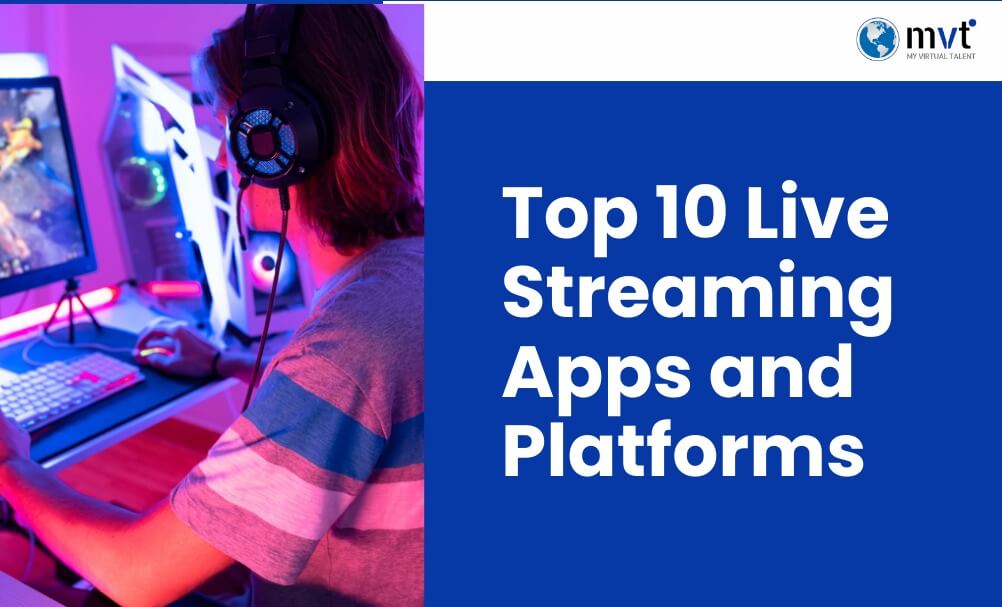
Successful startups know that telling their story is a powerful way to grow. That’s why many smart founders use content marketing to reach more people, build trust, and stand out from the crowd.
Content marketing helps your startup get noticed without spending too much money. You can share blog posts, social media updates, videos, and more to connect with your audience. It’s a great way to explain what your startup does and why it matters.
But if you’re just starting out, you might not know where to begin. With limited time and money, it can feel overwhelming. That’s where this guide comes in.
We’ve put together 10 simple and smart content marketing tips for startups. These tips are made just for busy founders like you. You’ll learn how to plan your content, what to post, and how to make it work for your business.
By the end, you’ll feel more confident and ready to use content marketing to grow your startup. Let’s get started and help your brand get the attention it deserves!
These are 10 Content Marketing Tips For Startups:
1. Define Your Content Marketing Goals
Before you start creating content, ask yourself this essential question: What do I want this content to achieve?
Your goals could be as broad as building brand awareness or as narrow as generating X number of leads per quarter. Set goals that align closely with your overall business objectives and use the SMART criteria (Specific, Measurable, Achievable, Relevant, Time-Bound) to ensure clarity and focus.
Example SMART Goal
“Generate 25 qualified leads per month through content downloads over the next six months.”
Clear goals will guide your content strategy, ensuring every blog, video, or email serves a distinct purpose.
2. Know Your Target Audience Inside Out
Who are you making this content for? A key mistake many startups make is trying to talk to “everyone” instead of honing in on their core audience.
Use tools like Google Analytics, Facebook Audience Insights, or surveys to understand:
- What are your customers’ pain points?
- What do they value, and where do they spend time online?
- What types of content do they consume (and share)?
Develop detailed buyer personas that outline demographics, motivations, and online behavior. For example, a SaaS startup might target “Sophia,” a 32-year-old operations manager who values efficiency and spends time on LinkedIn seeking solutions for workflow automation.
Getting this right will help you craft content that’s laser-focused, relevant, and engaging.
3. Focus on Quality Over Quantity
Content marketing tips for startups often focus on creating more content—but more isn’t always better. When you’re just starting out, it’s easy to feel like you need to post all the time. But posting too much low-quality content can waste your time and confuse your audience.
Instead, aim to create helpful, well-written content that truly helps your readers. Quality content builds trust and shows people that your startup knows what it’s talking about.
Here are a few ideas:
- Write a detailed how-to guide that answers a real question your audience has.
- Share a case study that shows how your product or service helped someone.
- Create content that’s backed by research or real experience.
This kind of content is more likely to be shared, remembered, and ranked by search engines.
Remember, one great blog post is more powerful than five rushed ones. Focus on helping, not just posting. This is one of the smartest content marketing tips for startups that want to grow the right way.
4. Optimize for SEO from the Start
One of the best content marketing tips for startups is to think about SEO (Search Engine Optimization) right from the start. Many startups skip SEO because it sounds hard or too technical. But the truth is, basic SEO is simple and can help people find your content online for free.
Here’s a beginner-friendly SEO checklist you can follow for every blog post or web page:
- Find the right keywords. Use free tools like Ubersuggest, Google Trends, or Keywords Everywhere to see what your audience is searching for.
- Write good titles and descriptions. Use your keywords in your meta title and meta description so search engines know what your page is about.
- Use clear headings. Organize your content using H2 and H3 headings. It makes your writing easier to read and helps your page rank better.
- Make sure your website works well on phones and loads fast. A slow or messy site can push people away.
Even small SEO efforts can bring in more traffic over time. For startups, this is a smart and low-cost way to grow your reach. Start today!
5. Leverage Social Media for Content Distribution
One of the best content marketing tips for startups is to use social media to share your content. Think of social media as a megaphone; it helps more people see what you create. But you don’t need to be on every platform. That can be too much for a small team.
Pick 2 or 3 social platforms where your audience spends the most time.
- If your startup sells to other businesses (B2B), LinkedIn is a great choice.
- If your audience is everyday consumers, try Instagram or TikTok.
Once you pick your platforms, make the most of your content. Don’t just post something once and forget it. Turn one blog post into many smaller pieces:
- Share a short quote or tip on Twitter.
- Create a visual carousel on Instagram.
- Turn the blog into a LinkedIn article.
This way, your content works harder without needing to start from scratch every time. Social media helps you reach more people, build your brand, and grow your audience one post at a time.
6. Use Email Marketing to Engage and Convert
One of the smartest content marketing tips for startups is to use email marketing. Email is a powerful way to stay in touch with your audience and turn readers into loyal customers.
When someone signs up for your emails, they’re showing real interest. Now it’s your job to keep them engaged. Send helpful and friendly emails that offer value, not just sales messages.
Here are a few ideas of what to include in your emails:
- Tips and highlights from your blog that offer real advice
- Behind-the-scenes stories about your startup journey
- Special offers or early sneak peeks just for subscribers
You don’t need to be a tech expert to start. Tools like Mailchimp or MailerLite make it easy to create and send emails. You can even schedule emails ahead of time.
Email marketing helps you build trust, share your story, and guide people toward buying from you. For startups, it’s a low-cost, high-reward strategy that works. So start building your email list today and make it part of your content plan!
7. Experiment with Different Content Types
Say goodbye to cookie-cutter strategies. Today’s consumer interacts with content across multiple formats, so don’t be afraid to experiment.
Startups often punch above their weight by standing out with creative formats such as:
- Short, snackable videos
- Informative infographics or charts
- Story-driven podcasts or webinars
For example, a small EdTech startup boosted audience engagement dramatically by producing explainers in video form for LinkedIn.
Think about what resonates most with your audience and invest your energy there.
8. Measure Performance and Iterate
You can’t improve what you don’t measure. Luckily, tracking performance is now easier than ever, thanks to tools like Google Analytics, HubSpot, or SEMrush.
Here’s what to monitor:
- Website traffic and referral sources
- Bounce rates and time spent on page
- Conversion metrics (form fills, downloads, etc.)
For example, if you notice blogs with “how-to” titles get more traffic, consider doubling down on educational, problem-solving formats going forward.
9. Build Relationships Through Thought Leadership
By showcasing your startup as a leader in your niche, you make your brand more credible and trustworthy. Thought leadership positions your team as subject-matter experts who genuinely care about their industry.
How?
- Publish deep-dive articles on LinkedIn
- Contribute guest blogs to industry websites
- Speak at (or even host) webinars, podcasts, or live Q&As
Thought leadership builds a long-term connection with your audience, turning them from followers to advocates.
10. Make Collaboration Part of Your Strategy
You don’t have to do it alone! Partnering with complementary brands, industry experts, or content creators can skyrocket your reach without large ad budgets.
For example, you could write a joint case study with a partner brand, co-host a webinar, or exchange guest blog opportunities. These partnerships help tap into new audiences while offering mutual value.
Final Thoughts
Content marketing tips for startups can make a big difference when you’re trying to grow your business. It’s a smart and affordable way to build your brand, reach new customers, and share your story.
By using the 10 simple tips we shared, you now have a strong starting point. These tips are easy to follow and work well even if you’re just getting started.
The most important thing to remember is this: you don’t need to be perfect. Just be consistent. Try one or two tips today, like writing a helpful blog post or sharing something on social media. Over time, small steps will lead to big results.
If you’re not sure where to begin or want expert help, we’re here for you. Need personalized help with your strategy? Call MyVirtualTalent for Consultation and get the support you need to make your content marketing work better for your startup.
Looking for fresh content?
Get articles and insights from our weekly newsletter.
Recent Posts
Reduce Your Marketing Spend By 70% And Grow Your Revenue Organically 10X Faster!
Get a Free Quote Today!










